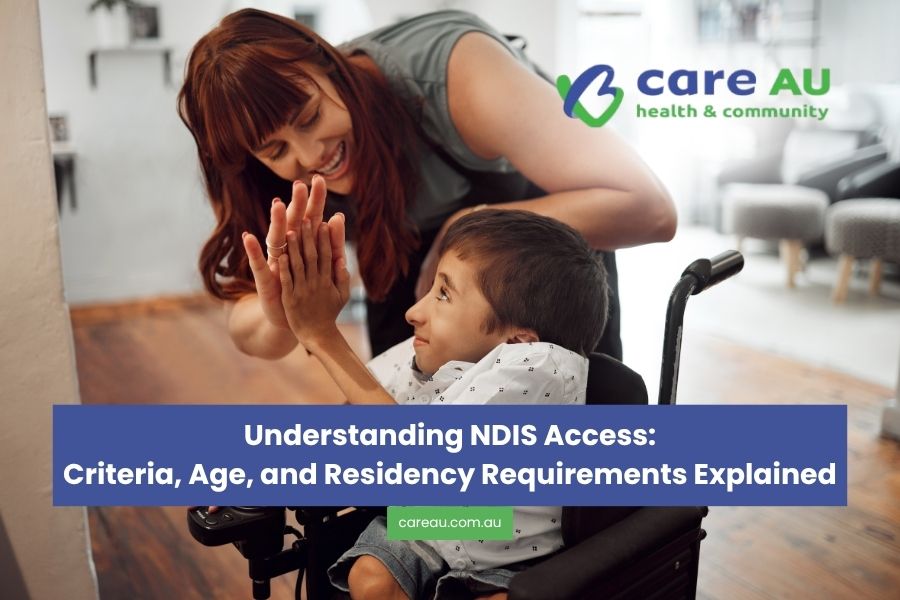Table of Contents
Understanding NDIS Access: Criteria, Age, and Residency Requirements Explained
Understanding the NDIS Age Requirements
- Aged 9 to 64: If you are within this age range, you will apply directly to the National Disability Insurance Agency (NDIA) or be supported by a Local Area Coordinator (LAC).
- Children Under 9: Children younger than nine years old, including those with developmental delay or disability, access the scheme through the Early Childhood Approach (ECA). This pathway is managed by an Early Childhood Partner (ECP) and is often referred to as early intervention. The focus here is to provide support as early as possible to improve long-term outcomes and reduce the need for support later in life.
What Happens If I’m Over 65?
- You will typically access support through My Aged Care. This includes aged care packages and other programs designed for older Australians.
- A Crucial Exception: If you were already an NDIS participant before your 65th birthday, you generally have the choice to remain on the NDIS or transition to My Aged Care. The choice is yours.
NDIS Residency Requirements: Where You Need to Be
- You Must Live in Australia: You need to be currently residing in the country.
- You Must Be One of the Following:
- An Australian Citizen.
- An Australian Permanent Resident.
- A Protected Special Category Visa (SCV) Holder.
Meeting the NDIS Disability Requirements
Defining Permanent and Significant Disability
- Physical
- Intellectual
- Cognitive
- Neurological
- Sensory
- Psychosocial (mental health related)
Life Domain | What it means for NDIS Access |
Communication | Difficulties being understood or understanding others. |
Social Interaction | Difficulties making and keeping friends or interacting in the community. |
Learning | Difficulties acquiring new knowledge and skills. |
Mobility | Difficulties moving around the home, community, or performing physical tasks. |
Self-Care | Difficulties with personal tasks like showering, dressing, and eating. |
Self-Management | Difficulties with problem-solving, planning, decision-making, or managing daily tasks. |
- Diagnostic Reports: It is a formal document of a qualified professional (GPs, specialist, paediatricians or psychiatrists) certifying the diagnosis of the impairment and that the impairment is enduring.
- Functional Assessments: The reports of allied health practitioners specifically stating the effects of the disability on your functional capacity in the six spheres of life. These reports need to be very clear about why your capacity is considerably diminished.
Your NDIS Eligibility Checklist: Are You Ready to Apply?
Requirement | Yes / No |
Age | Were you under 65 on the day you lodged your application? |
Residency | Are you an Australian Citizen, Permanent Resident, or Protected SCV holder living in Australia? |
Permanency | Do you have a permanent impairment (likely to be lifelong)? |
Significance | Does your impairment substantially reduce your capacity in one or more of the six life domains (Communication, Mobility, Self-Care, etc.)? |
Support Need | Do you require ongoing disability-specific supports from the NDIS? (Or, are you seeking early intervention to reduce future need?) |
Taking the Next Step with Care Au
Need help getting started? Contact Care Au today. We’re happy to guide you through the process.

